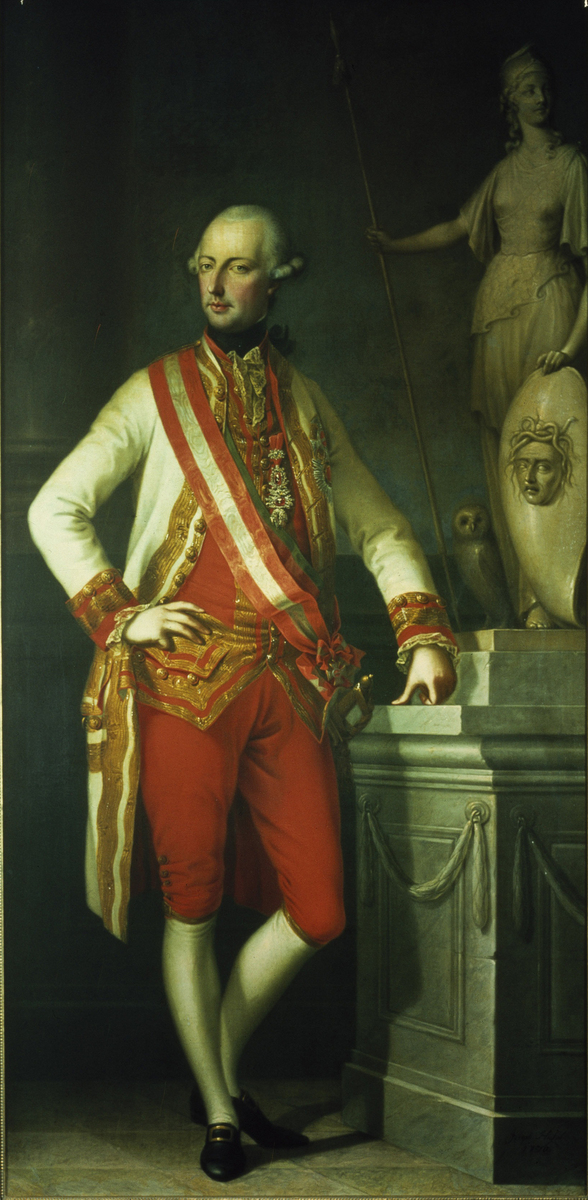Abstract
The son of Maria Theresa (r. 1740-80), Holy Roman Emperor Joseph II
(r. 1765-90) was one of the leading representatives of “enlightened
absolutism.” He was responsible for many significant reforms, including
the abolition of juridical serfdom (1781) and the issuance of an edict
of toleration for the Jews (1782). His reform efforts – partly inspired
by power-political aims, partly by enlightenment principles – focused on
a variety of areas such as administration, social policy, agriculture,
and the judiciary, where torture was abolished as a judicial tool in
1777. In contrast to his mother, Joseph pursued the reform course
impetuously, antagonizing established circles like the nobility and
clergy with his centralist and anti-corporativist policies. Resistance
from these circles forced him to abandon some reforms toward the end of
his reign; other reforms were revoked after his death. In foreign
policy, he initially strove for reconciliation with Frederick II (“the
Great”) of Prussia (r. 1740-86), with whom he cooperated in the First
Partition of Poland in 1772. His mother, it should be noted, viewed this
cooperation with ambivalence. But the Prussian king eventually thwarted
Joseph’s attempt to incorporate Bavaria into Austria, and the two
countries battled each other once again in the ensuing War of the
Bavarian Succession (1778-79). The price of Joseph’s alliance with
Russia was Austrian involvement in a war against the Ottoman Empire;
this war came late in his reign and put Austria in an extremely
precarious position. The image shows Joseph next to a sculpture of
Minerva (Greek: Athena), the goddess of wisdom. Oil painting by Joseph
Hickel (1736-1807), second half of the eighteenth century.
